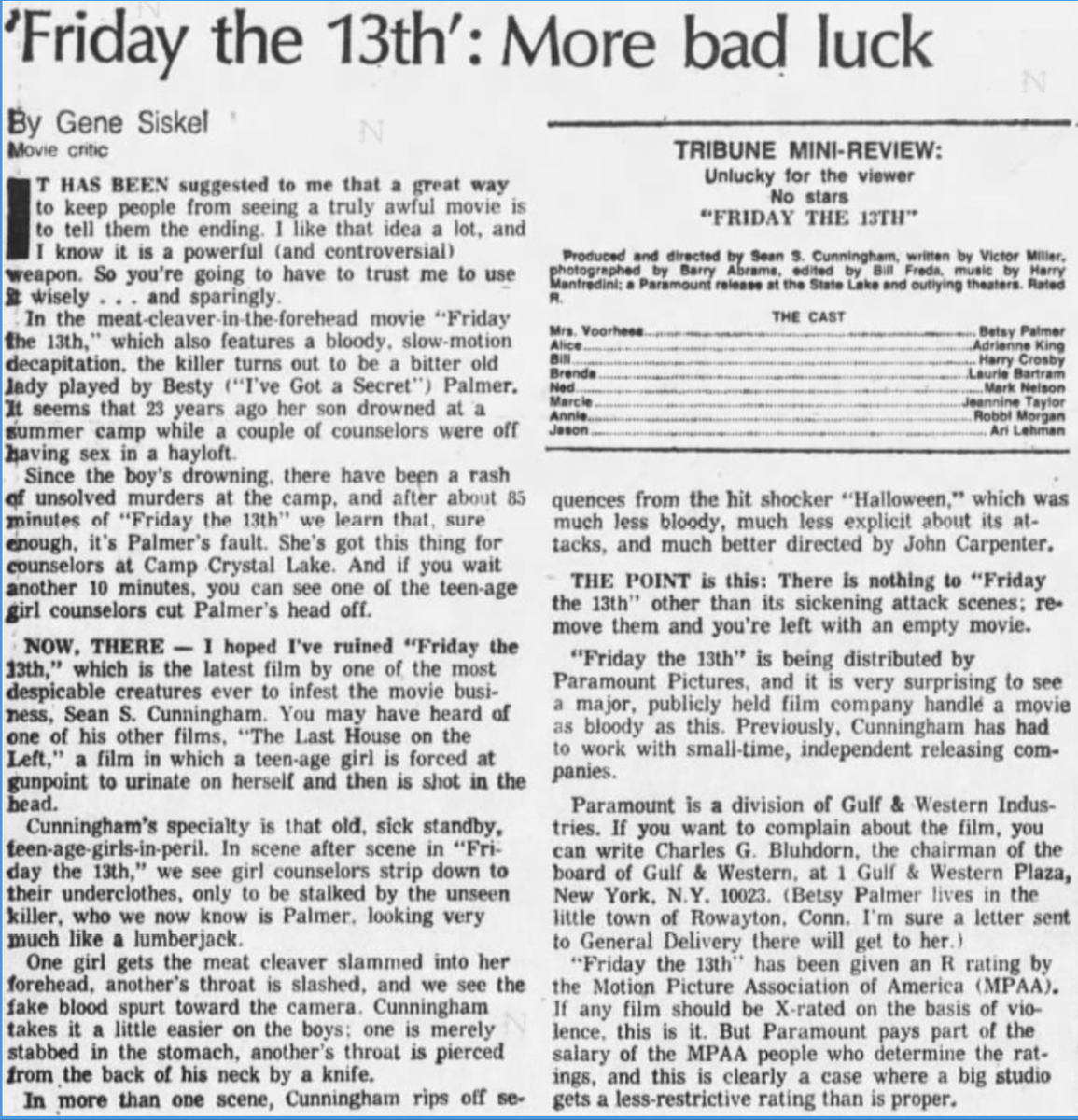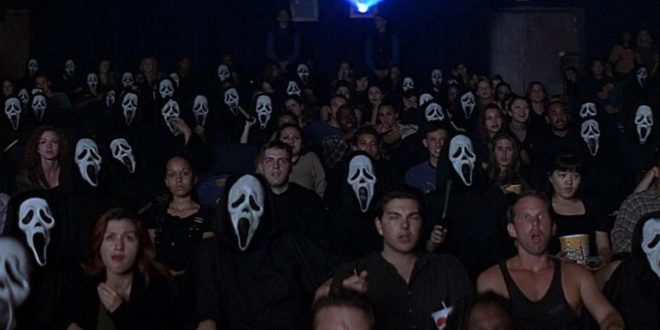Both the public and academics often claim that horror fans are less empathetic and compassionate, but is this true?
My new paper suggests this stereotype is inaccurate.
psyarxiv.com/rhc23
Read on to see why. This was a fun set of studies
1/🧵👇
My new paper suggests this stereotype is inaccurate.
psyarxiv.com/rhc23
Read on to see why. This was a fun set of studies
1/🧵👇

The rise of slashers led to moral panic from the public & critics in the 80's. Gene Siskel encouraged readers to mail complaints to Paramount's chairman, & The UK banned what they called "video nasties," leading the Scotland Yard to raid VHS stores.
imdb.com/list/ls0513642…
2/🧵
imdb.com/list/ls0513642…
2/🧵

There's some evidence that horror fans are lower in empathy, but this literature is small, mostly from the 80s, and suffers from some methodological and conceptual flaws. I addressed these issues in a previous thread.
3/🧵
https://twitter.com/MorbidPsych/status/1528511275088629760?s=20&t=7mu7PMV7ud6nM8_X6q4xHw
3/🧵
So both scientists and the public think horror fans are low in empathy & compassion — but is this true? I tested this in Study 1. I had participants predict the personality of different people based on randomly generated profiles. They also reported their favorite genre
4/🧵

4/🧵


The participants predicted that those who listed horror as their favorite movie genre were lower in empathy, compassion, and kindness.
Of course, horror fans knew better. They perceived other horror fans to be just as empathetic, compassionate, and kind.
5/🧵

Of course, horror fans knew better. They perceived other horror fans to be just as empathetic, compassionate, and kind.
5/🧵


Now I had evidence that people had this view of horror fans, but was it an accurate view?
Study 2 looked at how trait levels of cognitive empathy, affective empathy, and coldheartedness related to enjoyment of 5 subgenres of horror.
editorial.rottentomatoes.com/article/slashe…
6/🧵
Study 2 looked at how trait levels of cognitive empathy, affective empathy, and coldheartedness related to enjoyment of 5 subgenres of horror.
editorial.rottentomatoes.com/article/slashe…
6/🧵
After they completed the empathy and coldheartedness measures, I gave participants definitions and examples of each subgenre and asked how much they enjoyed them. I also averaged responses for a general measure of horror enjoyment.
Any predictions?
7/🧵


Any predictions?
7/🧵



Greater enjoyment of any given subgenre of horror was either unrelated to empathy and coldheartedness or *positively* correlated with empathy and *negatively* correlated with coldheartedness.
Horror fans were not lower in empathy or more coldhearted than non horror fans.
8/🧵
Horror fans were not lower in empathy or more coldhearted than non horror fans.
8/🧵

It's possible that some people believe they are compassionate or empathetic, but don't put their money where their mouth is when it matters. So, I had participants play a dictator game 1 week later
I gave them a bonus and told them they could donate some of they want.
9/🧵
I gave them a bonus and told them they could donate some of they want.
9/🧵

There was no expectation of reciprocity and donations were anonymous.
There was reason to donate money to a participant whose name was not randomly drawn to receive a bonus other than a sheer act of kindness or compassion. Some examples of participants' comments here.
10/🧵


There was reason to donate money to a participant whose name was not randomly drawn to receive a bonus other than a sheer act of kindness or compassion. Some examples of participants' comments here.
10/🧵



About half of the participants decided to donate some portion of their bonus.
How did the horror fans do?
They were just as kind and compassionate as everyone else. Enjoyment of horror was not significantly correlated with how much the participant decided to donate.
11/🧵
How did the horror fans do?
They were just as kind and compassionate as everyone else. Enjoyment of horror was not significantly correlated with how much the participant decided to donate.
11/🧵

So to sum up, these studies found:
1) Empirical evidence that people believe horror fans are less kind, empathetic, and compassionate.
2) Enjoyment of horror — even the gory, violent subgenres — is either unrelated to empathy and compassion or positively related to it.
12/🧵
1) Empirical evidence that people believe horror fans are less kind, empathetic, and compassionate.
2) Enjoyment of horror — even the gory, violent subgenres — is either unrelated to empathy and compassion or positively related to it.
12/🧵
This will not come as a surprise to horror fans. But if you were surprised by these findings, I'd encourage you to hangout with some people who like horror. Go to some conventions! Horror fans some of the nicest people around (now supported by science).
👻
👻
Some people who may be interested in this:
@DreadCentral
@CryptTV
@blumhouse
@GretchenP
@HorrorWriters
@BDisgusting
@joshstolberg
@MHhorrordoc
@HorrorLex
@RecFearLab
@horrorhomeroom
@LangenkampH
@cass__clarke
@paulbloomatyale
@FacultyofHorror
@DreadCentral
@CryptTV
@blumhouse
@GretchenP
@HorrorWriters
@BDisgusting
@joshstolberg
@MHhorrordoc
@HorrorLex
@RecFearLab
@horrorhomeroom
@LangenkampH
@cass__clarke
@paulbloomatyale
@FacultyofHorror
I think @joe_hill would also like this
A few others who may be interested
@omgchomp
@TheMutantFam
@HorrorSociety
@SadieHartmann
@therealjoebob
@choptopmoseley
@FreddyInSpace
@MickGarrisPM
@bdisgustingpod
@barbaracrampton
@Shudder
@DegenRolf
@daveschester
@CJFerguson1111
@voraciousbrain
@SteveStuWill
@omgchomp
@TheMutantFam
@HorrorSociety
@SadieHartmann
@therealjoebob
@choptopmoseley
@FreddyInSpace
@MickGarrisPM
@bdisgustingpod
@barbaracrampton
@Shudder
@DegenRolf
@daveschester
@CJFerguson1111
@voraciousbrain
@SteveStuWill
• • •
Missing some Tweet in this thread? You can try to
force a refresh
















